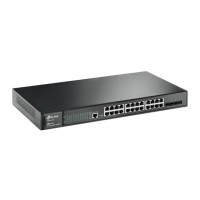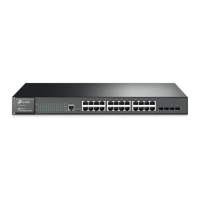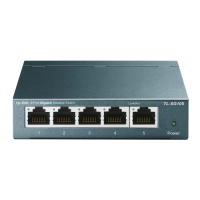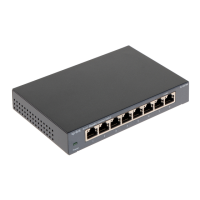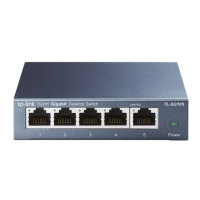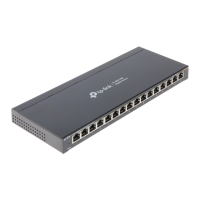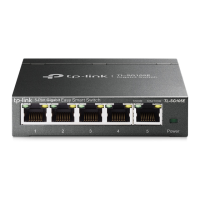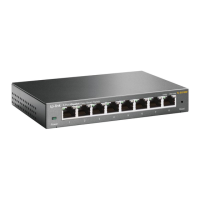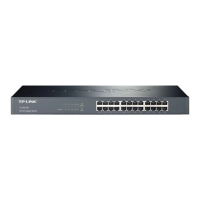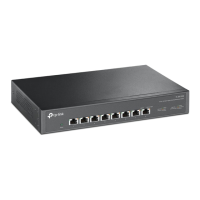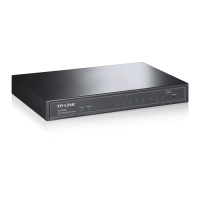20
IPv6 unicast address can be classified into several types, including global unicast address,
link-local address, and site-local address. The two most common types are introduced
below:
Global unicast address
A Global unicast address is an IPv6 unicast address that is globally unique and is
routable on the global Internet.
Global unicast addresses are defined by a global routing prefix, a subnet ID, and an
interface ID. Except for addresses that start with binary 000, all global unicast
addresses have a 64-bit interface ID. The IPv6 global unicast address allocation uses
the range of addresses that start with binary value 001 (2000::/3). The figure below
shows the structure of a global unicast address.
Figure 4-8 Global Unicast Address Format
An interface ID is used to identify interfaces on a link. The interface ID must be unique to
the link. It may also be unique over a broader scope. In many cases, an interface ID will
be the same as or based on the link-layer address of an interface. Interface IDs used in
global unicast and other IPv6 address types must be 64 bits long and constructed in the
modified extended universal identifier (EUI)-64 format.
For all IEEE 802 interface types (for example, Ethernet and FDDI interfaces), Interface
IDs in the modified EUI-64 format are constructed in the following way:
the first three octets (24 bits) are taken from the Organizationally Unique Identifier (OUI)
of the 48-bit link-layer address (the media access control, or MAC, address) of the
interface, the fourth and fifth octets (16 bits) are a fixed hexadecimal value of FFFE, and
the last three octets (24 bits) are taken from the last three octets of the MAC address.
The construction of the interface ID is completed by setting the universal/local (U/L)
bit--the seventh bit of the first octet--to a value of 0 or 1. A value of 0 indicates a locally
administered identifier; a value of 1 indicates a globally unique IPv6 interface identifier.
Take MAC address 0012:0B0A:2D51 as an example. Insert FFFE to the middle of the
address to get 0012:0BFF:FE0A:2D51. Then set the U/L bit to 1 to obtain an interface ID
in EUI-64 format as 0212:0BFF:FE0A:2D51.
Link-local address
A link-local address is an IPv6 unicast address that can be automatically configured on
any interface using the link-local prefix FE80::/10 (1111 1110 10) and the interface
identifier in the modified EUI-64 format. Link-local addresses are used in the neighbor
discovery protocol and the stateless autoconfiguration process. Nodes on a local link
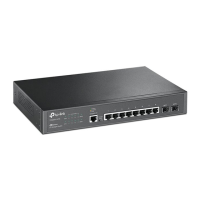
